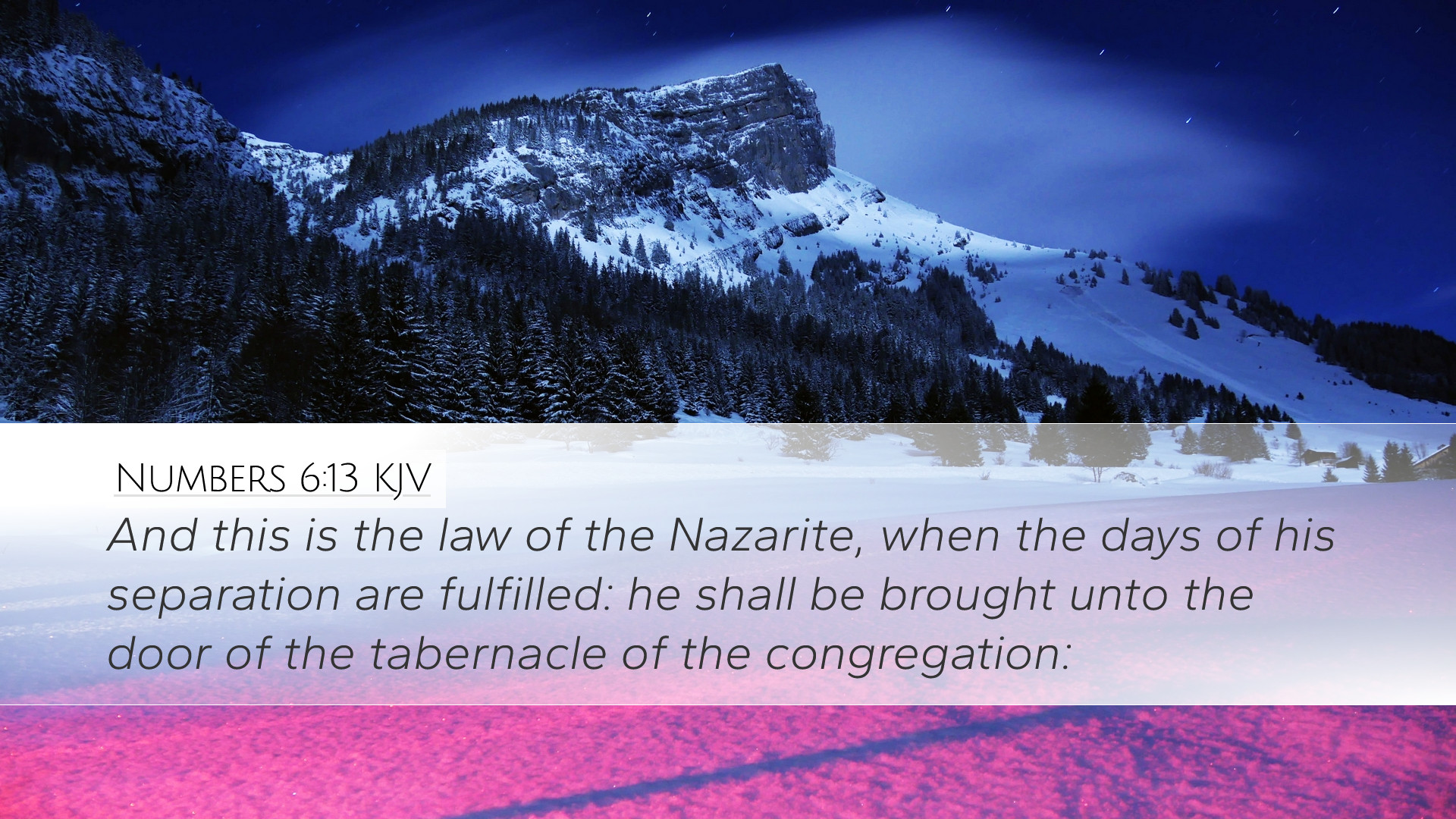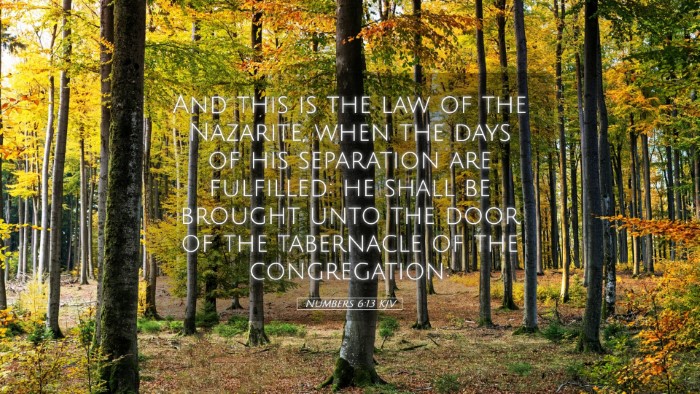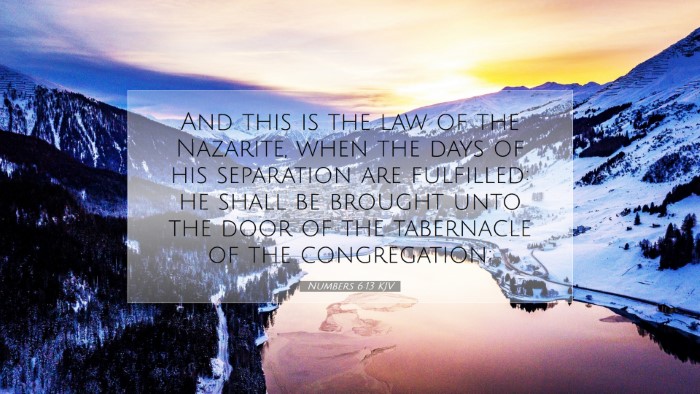Commentary on Numbers 6:13
The verse reads: “And this is the law of the Nazarite: when the days of his separation are fulfilled, he shall be brought unto the door of the tabernacle of the congregation.” This scripture draws our attention to the specific regulations concerning the vow of a Nazarite, highlighting the spiritual significance of separation, dedication, and the fulfillment of vows.
Contextual Background
Understanding the cultural and historical context of the Nazarite vow provides valuable insight into this passage. The Nazarite vow, detailed in Numbers 6:1-21, was a voluntary commitment to dedicate oneself to the Lord for a set period. Individuals who took this vow refrained from consuming wine or strong drink, avoided contact with the dead, and let their hair grow as a sign of separation.
Key Insights from Commentaries
Matthew Henry's Commentary
Matthew Henry emphasizes that the Nazarite vow is a symbol of a person's dedication and separation to God. He notes that the completion of the vow required a ceremonial act at the tabernacle, underscoring the importance of public acknowledgment and accountability before God and the community. This public act illustrates that the act of separation is not merely personal but belongs to the corporate life of Israel, enhancing communal worship and sanctity.
Albert Barnes' Notes
Albert Barnes highlights the significance of 'the door of the tabernacle of the congregation' as the place where the Nazarite must come at the completion of his vow. The door represents access to God's presence and indicates that every act of dedication must be brought before Him. Barnes notes that this return illustrates the principle that our commitments to God must be public and deliberate, stressing the principle that fulfillment of vows carries a responsibility to acknowledge God’s grace and presence in the community setting.
Adam Clarke’s Commentary
Adam Clarke elaborates on the required offerings upon completion of the vow, emphasizing the sacrificial aspect of the Nazarite’s journey. He points out that these offerings included a lamb, a ewe-lamb, and a ram, addressing the serious and sacred nature of the vow. Clarke points to the idea that these sacrifices symbolize the believer's acknowledgement of their inadequacy and the need for atonement, serving as a reminder of the greater sacrifice of Christ. This transition illustrates a core theological principle that all acts of devotion ultimately point towards the need for divine grace.
Theological Implications
Numbers 6:13 serves as a profound reminder of the nature of covenants with God. The act of separation and the subsequent bringing of oneself to the tabernacle has both personal and communal implications. This highlights several key theological themes:
- Separation for Holiness: The verse signifies the call to holiness and separation from the world for the purpose of devotion to God.
- Recognition of God's Sovereignty: The process requires acknowledgment of God’s power and role in the life of the believer.
- Community and Accountability: The tabernacle as a gathering point emphasizes how individual commitments affect the corporate body of faith.
- Preparation for Worship: The act of bringing oneself to the tabernacle indicates a transition into a space of worship and reflection on the vows taken.
Practical Application
For pastors, students, and scholars, Numbers 6:13 serves as a reminder of the significance of vows and commitments in today’s spiritual journey. Here are some practical applications:
- Encouraging Voluntary Commitments: Church leaders should encourage members to make personal commitments to God, similar to the Nazarite vow, fostering deeper relationships with Him.
- Public Confession and Accountability: The church should create spaces for individuals to publicly affirm their commitments, serving to strengthen community bonds.
- Reflecting on Commitment Fulfillment: Similarly, churches could incorporate practices that allow for the reflection upon and fulfillment of personal vows, in ways that align with biblical principles.
- Symbolism of Sacrifice in Worship: Recognizing the importance of sacrifices in the believer's life can help regenerate a consciousness of gratitude and humility before God.
Conclusion
In conclusion, Numbers 6:13 encapsulates the essence of what it means to be set apart for the Lord. Drawing from the insights of biblical commentaries, we understand that the call to holiness, public acknowledgment of one’s vows, and the sacrificial nature of our commitments are essential elements of the Christian faith. As such, this verse serves as a timeless reminder of the importance of dedication to God and the acknowledgment of our obligations within the context of community worship.


